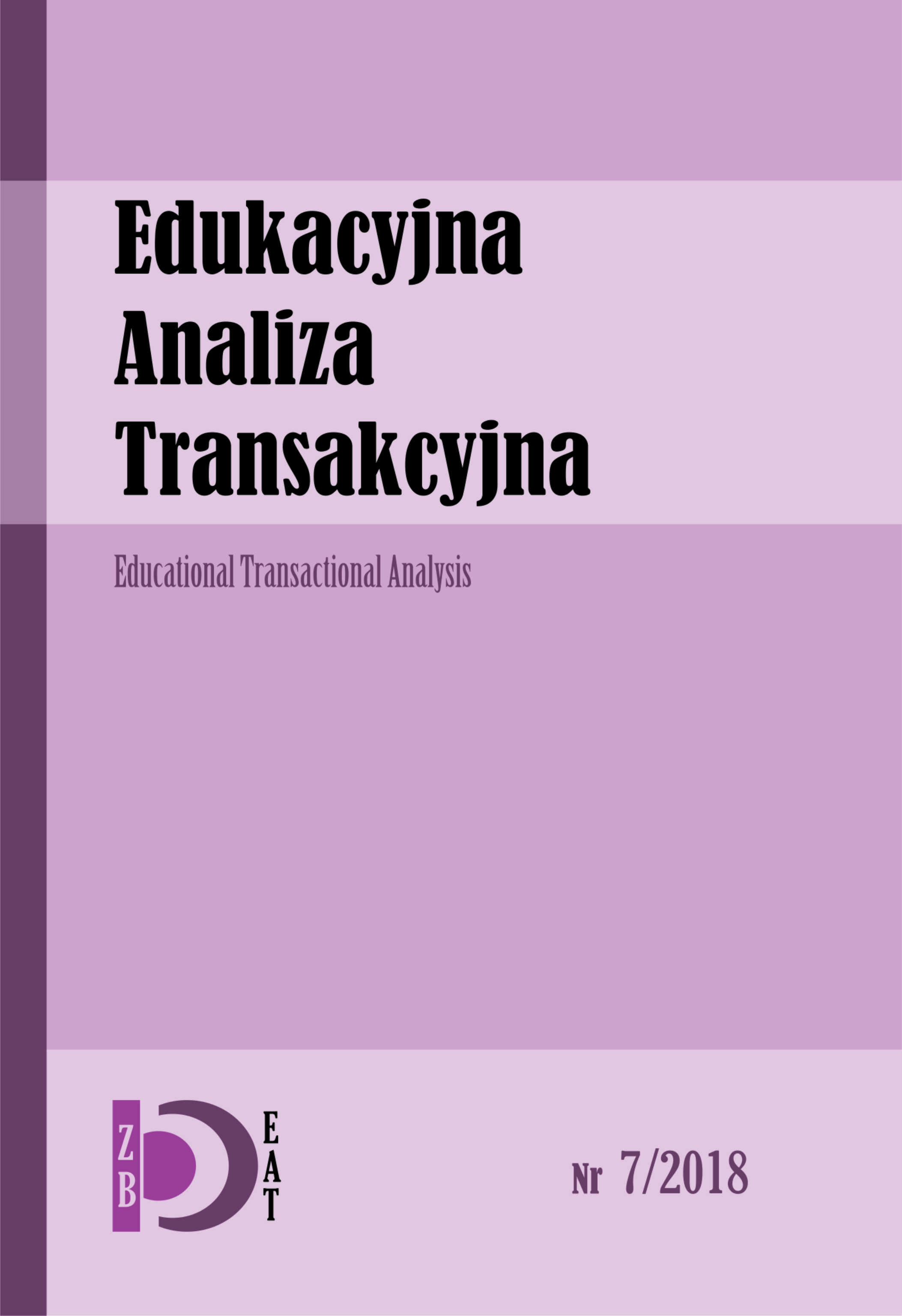Korepetycje w podejściu relacyjnym: uczenie się i nauczanie jako proces terapeutyczny. Refleksja w oparciu o model analizy transakcyjnej
- Authors
-
-
- Keywords:
- tutoring, therapeutic process, contract, 5P model, injunctions, counter-injunctions
- Abstract
-
The article is a personal reflection on private tuition, which involves learning and teaching processes. Private math lessons can be perceived not only as mere transmission of knowledge to the student, but also as a therapeutic process. Such an approach is less popular. The therapeutic effect is based on the relationship developed between the teacher and the learner, which ensures both more efficient gaining of knowledge and a corrective experience. Selected aspects of this process are presented in the paper, in accordance with the basic concepts of transactional analysis, such asClarke’s 5P model, the functional and structural model, transaction analysis, injunctions and counter-injunctions. The author reflects on the contract concluded within private tuition, as well as on some ethical doubts concerning a relational approach during lessons. Multiple examples taken fromthe authors’ personal experience are included as an illustration.
- Downloads
-
Download data is not yet available.
- Author Biography
- Downloads
- Published
- 2018-12-30
- Issue
- No. 7 (2018)
- Section
- Transactional analysis in education
- License
-
AUTHOR'S STATEMENT
I am aware that the Educational Transactional Analysis journal is published under a Creative Commons license - Attribution (https://creativecommons.org/licenses/by/4.0/legalcode).
By submitting the article, I agree to make it available under this license
How to Cite
Similar Articles
- Małgorzata Minchberg, mgr, Education through art: an artist at school , The Educational Transactional Analysis: No. 7 (2018)
- Piotr Przybylski, The Three-Cornered Contract in psychotherapy of the adolescent and his parents. , The Educational Transactional Analysis: No. 10 (2021)
- Kateryna Bulhakova, Zarina Sevalneva, Work on the somatic script with the use of the favourite childhood fairy tale , The Educational Transactional Analysis: No. 4 (2015)
- Zbigniew Wieczorek, dr, The integrated diagnostic model in the theory of transactional analysis , The Educational Transactional Analysis: No. 5 (2016)
- Zbigniew Wieczorek, dr, Language of Change in Transactional Analysis , The Educational Transactional Analysis: No. 6 (2017)
- Agnieszka Woś-Szymanowska, mgr, Process Communication Model – an effective tool supporting education , The Educational Transactional Analysis: No. 7 (2018)
- Ewa Wysocka, dr hab. prof. UŚ, Joanna Góźdź, mgr, Postawy życiowe młodzieży licealnej i ich wybrane – społeczno-demograficzne – korelaty , The Educational Transactional Analysis: No. 2 (2013)
- Prof. Yurii Pelekh, Dr. Nataliia Oksentiuk, Conceptualization of the Value Intelligence Model within a Comprehensive Scientific-Innovative Framework: Theoretical Foundations and Modeling Principles , The Educational Transactional Analysis: No. 14 (2025)
- Justyna Józefowicz, Effective school in a crisis COVID-19 , The Educational Transactional Analysis: No. 10 (2021)
- Anna Hady, Building relationships at school by responding to the individual needs of students and teachers using the Process Communication Model® , The Educational Transactional Analysis: No. 9 (2020)
You may also start an advanced similarity search for this article.
Most read articles by the same author(s)
- Agata Szekiełda, Bartłomiej Przybylski, Games and the teacher-headmaster relationship , The Educational Transactional Analysis: No. 8 (2019)
- Agata Szekiełda, Anna Jaskulska, Once upon a time, in a supervisor’s office , The Educational Transactional Analysis: No. 9 (2020)

